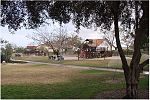Murder of the Hatuel family
The Murder of the Hatuel family was a shooting attack on May 2, 2004, in which Palestinian militants killed Tali Hatuel, a Jewish settler, who was eight months pregnant, and her four daughters, aged two to eleven. The attack took place near the Kissufim Crossing near their home in Gush Katif bloc of Israeli settlements in the Gaza Strip during the Second Intifada. After shooting at the vehicle in which Hatuel was driving with her daughters, witnesses said the militants approached the vehicle and shot the occupants repeatedly at close range.An alliance of Islamic Jihad and the Popular Resistance Committees claimed responsibility for the attack, stating that it was carried out in reprisal for the assassinations of Hamas leaders Sheikh Ahmad Yassin and Abdelaziz Rantisi by the Israeli army some weeks earlier.The attack shocked the Israeli public, and was classified by Amnesty International as a crime against humanity. On June 6, 2007, the IDF arrested Jihad Salah Saliman Abu Dahar, a Palestinian member of Islamic Jihad from the Khan Yunis area, who according to Shin Bet officials admitted to several acts of violence, including the attack on Hatuel and her daughters.
Excerpt from the Wikipedia article Murder of the Hatuel family (License: CC BY-SA 3.0, Authors).Murder of the Hatuel family
Kisufim Road,
Geographical coordinates (GPS) Address Nearby Places Show on map
Geographical coordinates (GPS)
| Latitude | Longitude |
|---|---|
| N 31.378055555556 ° | E 34.3575 ° |
Address
Kisufim Road
Kisufim Road
Palestinian Territories
Open on Google Maps


